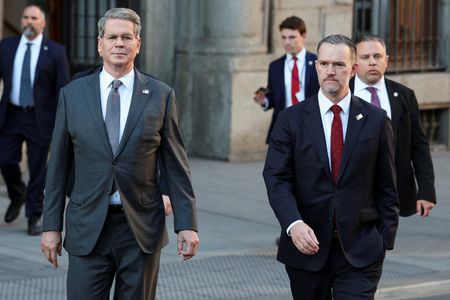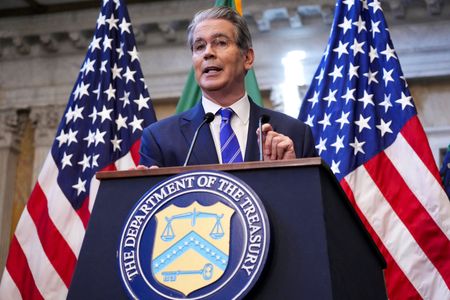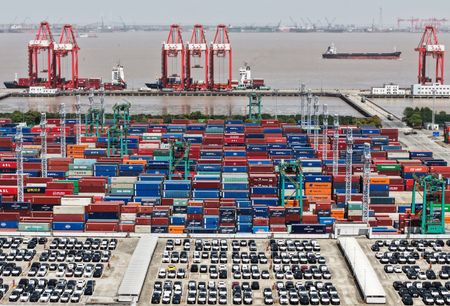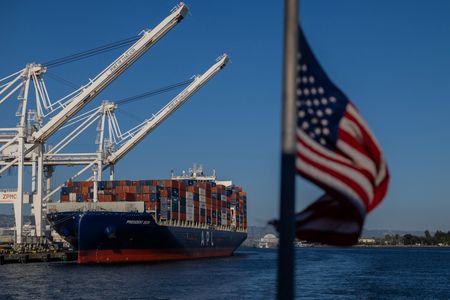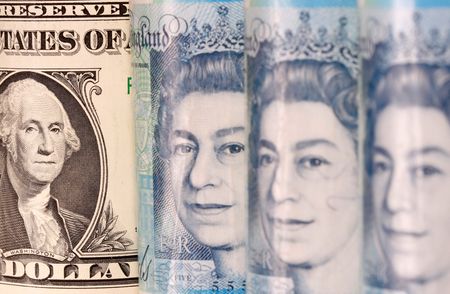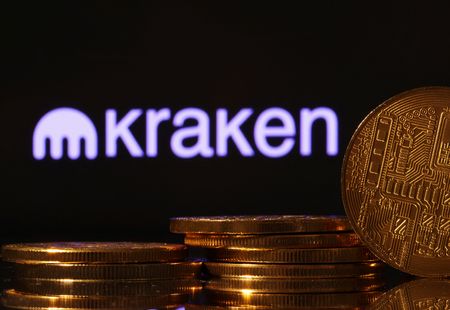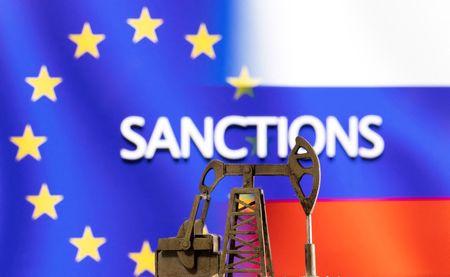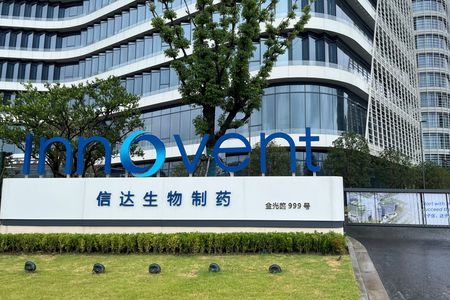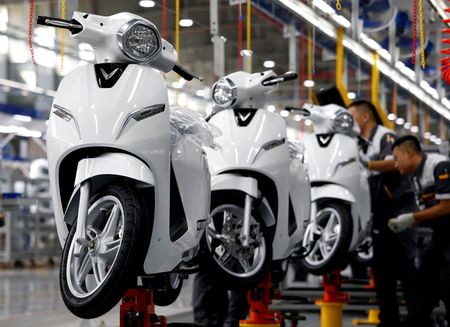By Andrea Shalal and Susan Heavey
WASHINGTON (Reuters) -U.S. Trade Representative Jamieson Greer said he and Treasury Secretary Scott Bessent will head to Malaysia on Wednesday to meet with Chinese officials about what he called “incredibly aggressive” and “disproportionate” measures by Beijing to curb exports of rare earth minerals.
Greer told CNBC’s “Squawk Box” program that there was still a spot on the schedule for President Donald Trump to meet Chinese President Xi Jinping, but it would be a mutual decision if the meeting took place on the sidelines of an economic conference in South Korea next week.
Trump is scheduled to travel to Kuala Lumpur for a meeting of the Association of Southeast Asian Nations that begins on Sunday, and later that week will attend a leaders’ summit of the Asia-Pacific Economic Cooperation forum on October 31-November 1 in Seoul.
The U.S. trade negotiator said China’s measures violated a commitment its officials had made months ago to keep supplying rare earths needed for high technology, but there was still a “good landing zone” for the U.S. and China to trade in a more balanced way.
Trade tensions between the U.S. and China, the world’s two biggest economies, have flared in recent weeks after months of relative calm. Trump imposed additional duties of 100% on China that are due to take effect on November 1 after China announced export controls on nearly all rare earths.
Greer and Bessent have since stressed that they don’t want to decouple from China, or escalate the situation, but insist the United States needs to rebalance trade with China after decades of very limited access to Chinese markets.
Trump on Tuesday insisted any deal with China had to be fair and suggested the meeting with Xi could still be scrapped.
“Maybe it won’t happen,” he said at a White House lunch with Republican senators. “Things can happen where, for instance, maybe somebody will say, I don’t want to meet, it’s too nasty. But it’s really not nasty, it’s just business.”
Greer noted that Trump and Xi had a good relationship and there was still a chance to ease tensions.
“There notionally is a good landing zone for the United States and China where we trade in a way that’s more balanced, and we’re trading in non-sensitive goods, and where we have a constructive relationship,” Greer told CNBC.
“The U.S. has always been quite open to the Chinese, and it’s really been driven by Chinese policies that exclude U.S. companies and drive overcapacity and overproduction in China. None of that works for the United States,” he said. “We can’t live that way anymore so we need an alternative path.”
Greer said Trump and other U.S. officials would also discuss agricultural issues, including China’s moves to stop purchasing U.S. soybeans and sorghum, which he said was intended to deliberately hurt U.S. farmers.
“Obviously the president will raise…we all…raise this with them,” he said, noting that China still has unfulfilled obligations to buy agricultural and manufactured goods under a trade deal signed during Trump’s first term.
(Reporting by Andrea Shalal and Susan Heavey; Additional reporting by Trevor Hunnicutt; Editing by Andrew Heavens, Sharon Singleton and Andrea Ricci)

